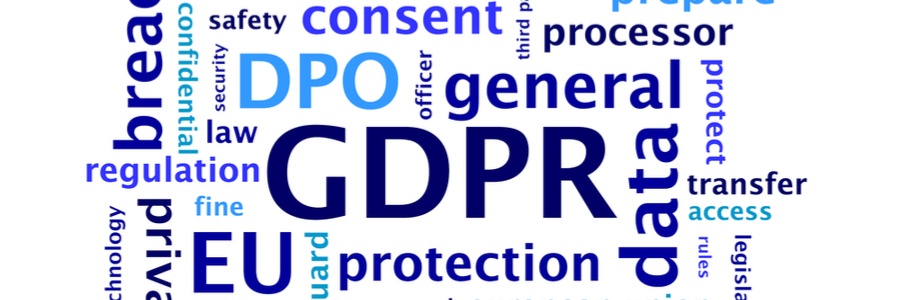
May 25, the day the General Data Protection Regulation (GDPR) goes into effect in the European Union, is the day the consumer insights industry finally is being forced to become absolutely serious about data sourcing and data quality. At last, consumers who provide the data are being accorded the respect and fair and honest treatment they’ve always deserved. And that's good news for all consumer insights professionals who care about quality, and not just about filling quotas.
GDPR’s impact on market research providers and buyers will be felt beyond the EU, because companies that collect data from consumers in EU countries must comply, regardless where they are based. Apple isn’t waiting: 9to5Mac reports that it's banning apps from its App Store if they don’t comply with a policy prohibiting publishers of iOS apps from providing consumers’ location data to third parties “without explicit consent from the user."
(For the detailed rundown you need on GDPR’s significant implications for the market research industry, attend the upcoming webinar, "The GDPR Survival Checklist for Market Researchers." It's happening May 31 at 10 a.m. Pacific/1 p.m. Eastern; to sign up, just click here.)
Meanwhile, U.S.-specific regulations similar to GDPR are in the pipeline, notably the California Consumer Right to Privacy Act of 2018, which will be put to a vote on the November ballot. The new law requires any company that collects data from consumers in California to disclose what’s being collected or sold, while giving each individual the right to opt out.
These new consumer rights are not a burden, but an opportunity for market research – and here’s why:
- It has long been obvious that data quality can't be achieved unless researchers are truthful and transparent with the consumers they rely on to provide the data.
- Treat consumers well, which most definitely means obtaining their informed consent to be surveyed or have their physical and digital journeys passively tracked, and they will reward you by upholding their end of the bargain with willing engagement and thoughtful survey responses.
Market research should have happily embraced this fundamental principle long ago, as soon as research methodology began its migration to digital space after having previously engaged consumers primarily by telephone call and face-to-face interview.
Instead, it has become commonplace for data providers and buyers alike to sacrifice quality for quantity in the race to keep completes coming from a public that’s increasingly reluctant to participate knowingly in online consumer research. Third-party, questionably sourced data can be a tempting short-cut for researchers who are desperate to make their projects feasible. But the industry has to do better than that, not just to respect the consumer, but to know precisely where the data is coming from. If you aren't in command of your data's sourcing, you're less likely to command respect as a fully credible and authoritative contributor to the process of making informed business decisions.
The beauty of GDPR for consumer insights is that it signals the end of cutting corners on data validation and data quality. GDPR means having to engage honestly and directly with first-party consumers, who now will have the explicit right to be treated as they’ve always deserved: as informed and willing research partners instead of mere “targets” for data extraction.
What does this mean to the actual task of performing consumer research, and serving the clients who rely on it?
- First, the flow of passively-tracked data is likely to be severely constricted for many suppliers and their customers. Consumers are becoming more aware that their locations and behaviors are being observed, and that they have a right to opt out.
- Second, companies that purchase third-party data will need to pay closer attention to how it’s being sourced. They’ll need assurances that the consumers providing it have received disclosures and have given consent, as required by the privacy laws. And if those assurances and verifications are lacking, the responsible, GDPR-compliant approach will be to shun data from those sources.
- Third, brands and companies that need consumer data will now have to focus on the quality of research participants’ survey experiences. Industry resource GreenBook has repeatedly documented, and with rising concern, how panelists’ experience has been a secondary consideration, at best, for many consumer insights professionals. Now, in keeping with the consumer-first spirit of GDPR, it’s time for the industry to truly earn consumers’ cooperation and consent by guaranteeing the good experiences and fair rewards that will make them want to opt in instead of tuning out.
MFour welcomes the new privacy and consent laws because they’re the same rules under which we’ve always operated. We’ve recognized from the start that in research, as in retail, the consumer must come first. A quality experience for our research participants translates into quality data for our clients.
Transparency is built into our dealings with the more than 2 million U.S. consumers who have downloaded Surveys On The Go®, the pioneering mobile app MFour launched in 2011 to bring consumer research into the Smartphone Era.
- For example, rather than track consumers' movements surreptitiously, or obtain merely technical, legalistic consent via fine print in the app’s terms of use, our policy is to give our app-users regular reminders that we would like them to turn on their devices’ location features.
- We make sure they understand that, in return for letting us keep track of their whereabouts, they are more likely to qualify for location-based surveys whose cash rewards are especially attractive.
- The proposition is clearly stated, and the decision is theirs to make. It's what fair-dealing with consumers in the research realm demands: always making it clear that they have agency over their data and participation.
- If a consumer who uses Surveys On The Go® would rather not be tracked by location, that’s fine; that person remains an app-user in good standing, and is still eligible for studies that are not location-sensitive. Personally identifiable information is always kept confidential and not shared with clients or anybody else.
To see what it takes to win consumers' trust in the research experience and gain their informed consent, you can visit the iOS App Store and Google Play, then search for Surveys On The Go®. Many consumers have left comments about their experiences with the app, and more than 70,000 have quantified their opinions by giving SOTG a rating of 4.5 stars out of 5.
So the days of dubiously sourced, catch-as-catch-can data acquisition are dwindling. Now the Digital Era is edging closer to maturity, and the Wild West mentality that has allowed some data collectors to play fast and loose with transparency and consent has nearly run its course.
Like it or not, market research, too, will be forced to focus on how data is sourced, while emphasizing the consumers' right to transparency about how and why their data is being collected. The realization will spread industry-wide that data quality comes first, that it doesn’t come dirt cheap, and that it doesn’t come from just anywhere, but from reliable, validated, first-party consumers who are being treated fairly and transparently, and having quality research experiences.
Vardan Kirakosyan is MFour's Vice President of Research Solutions.
To go deeper into GDPR and its implications for the insights industry, remember to sign up for our webinar, "The GDPR Survival Checklist for Market Researchers," presented by Vardan Kirakosyan of MFour. It's happening May 31 at 10 a.m. Pacific/1 p.m. Eastern. To register, just click here.

